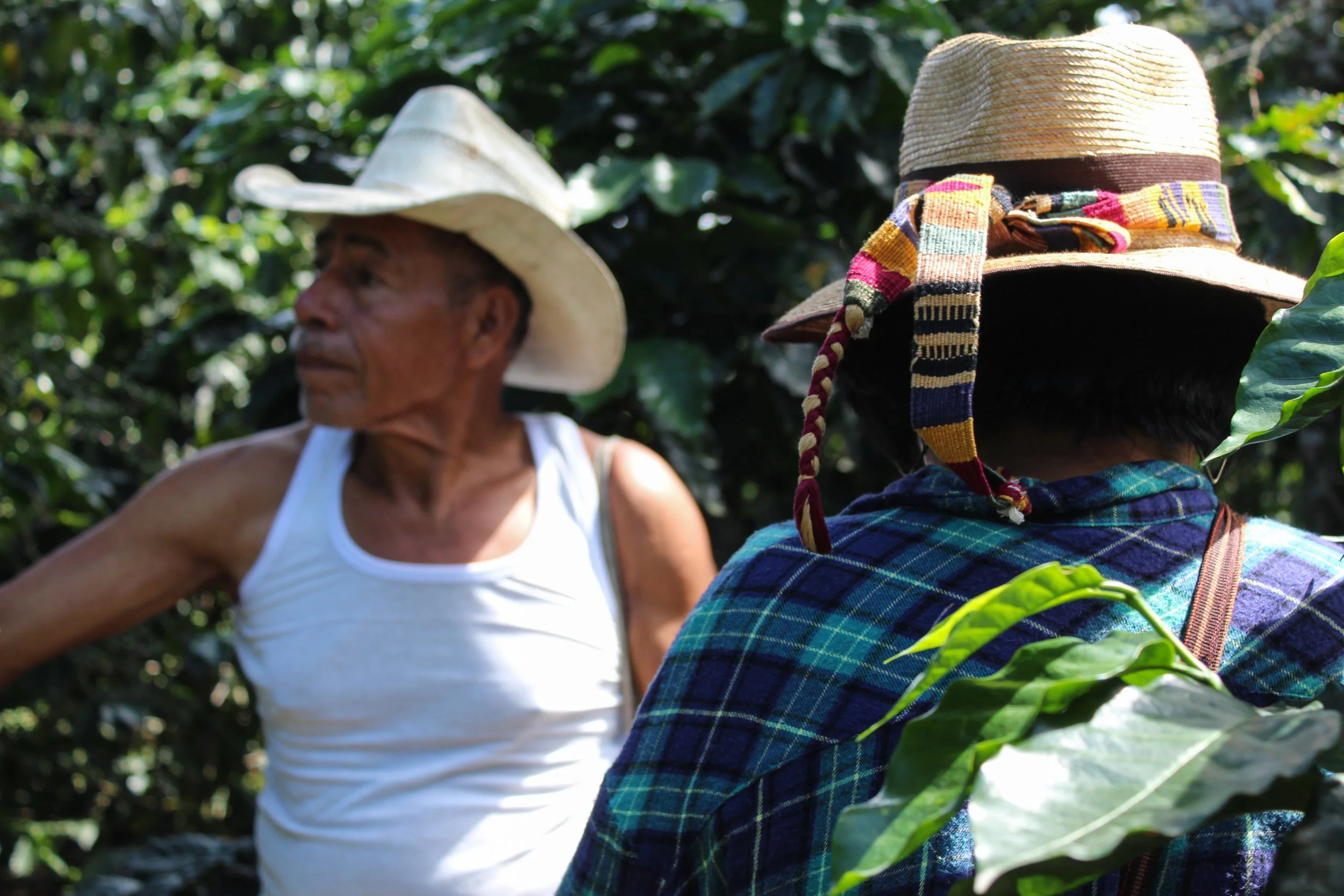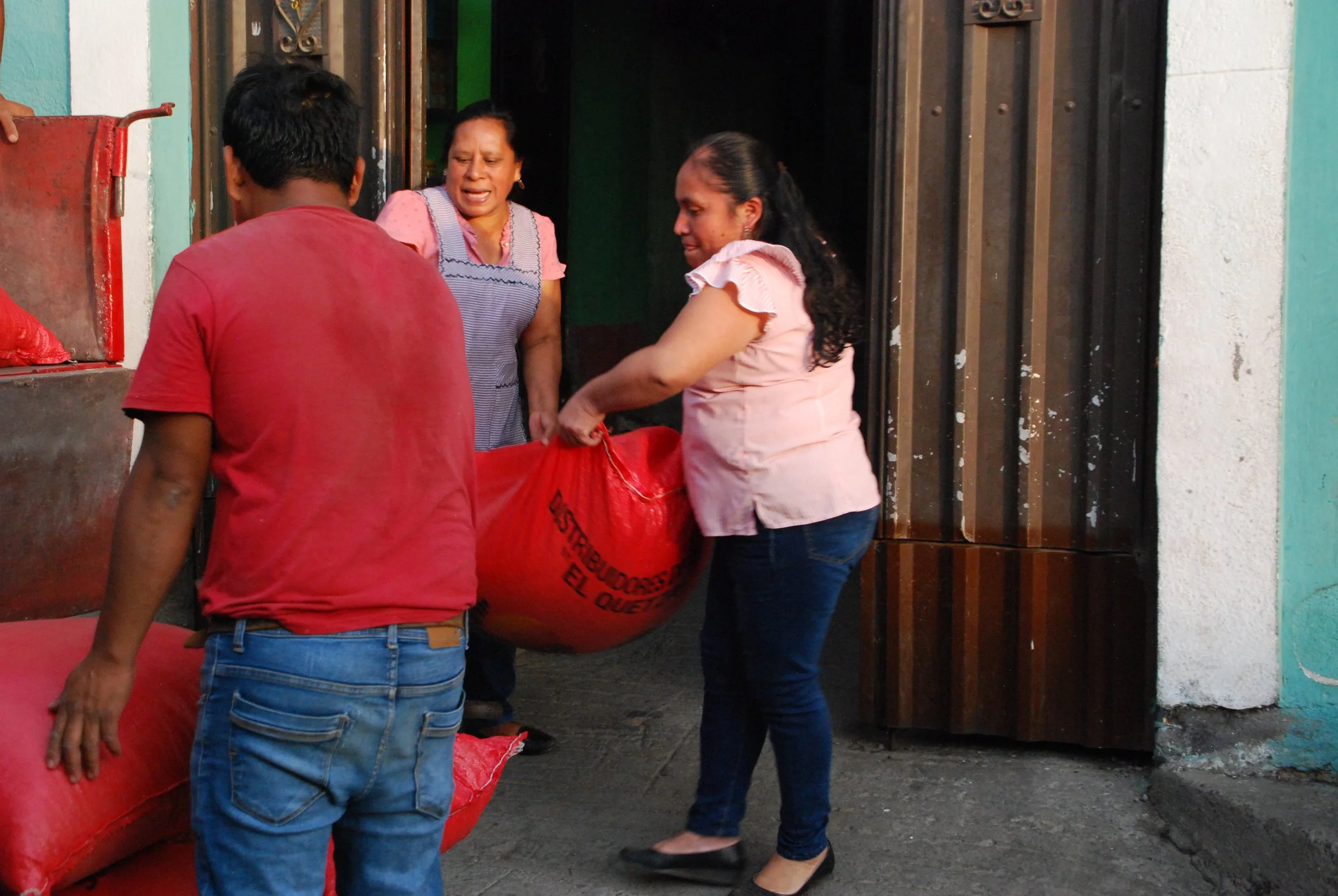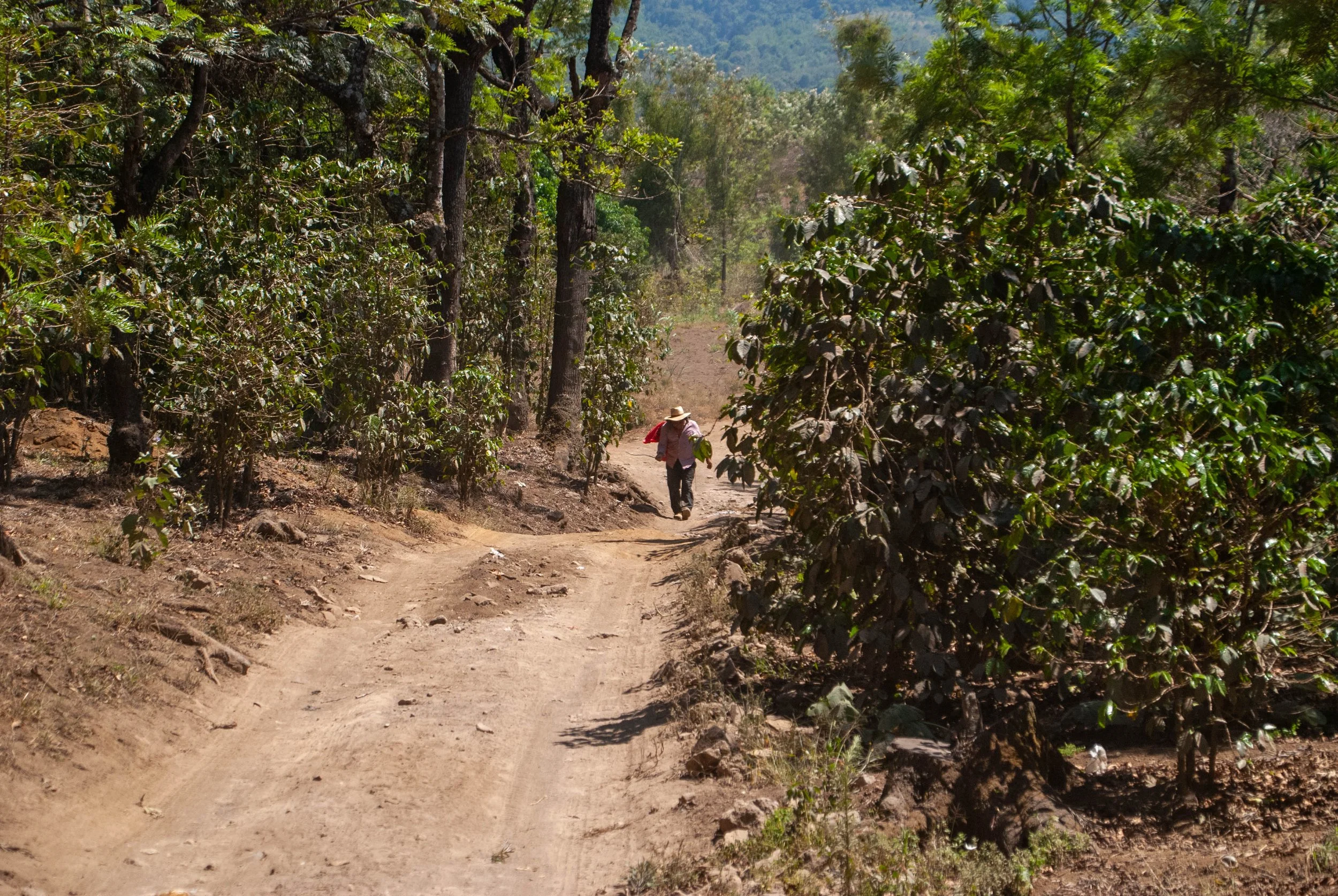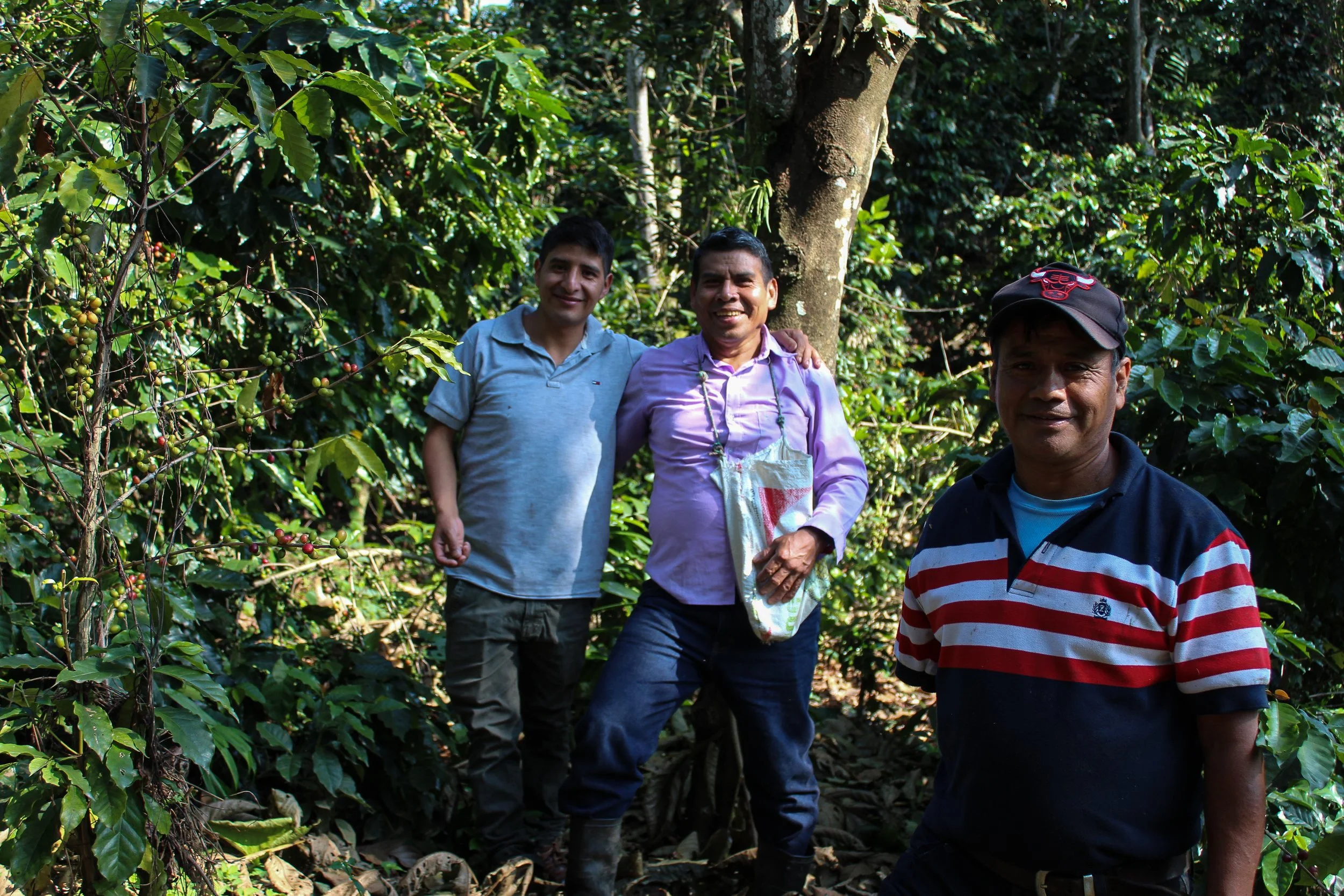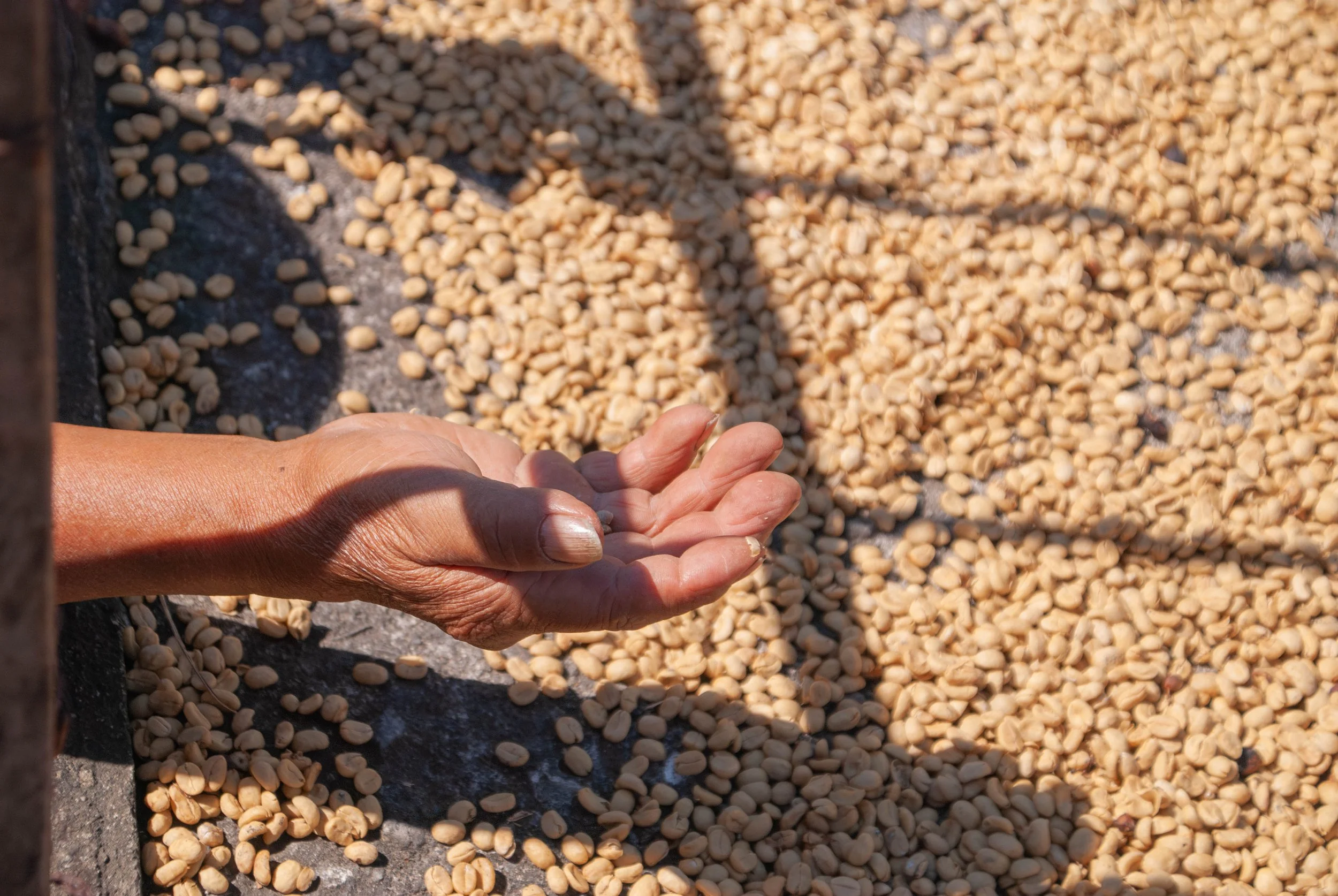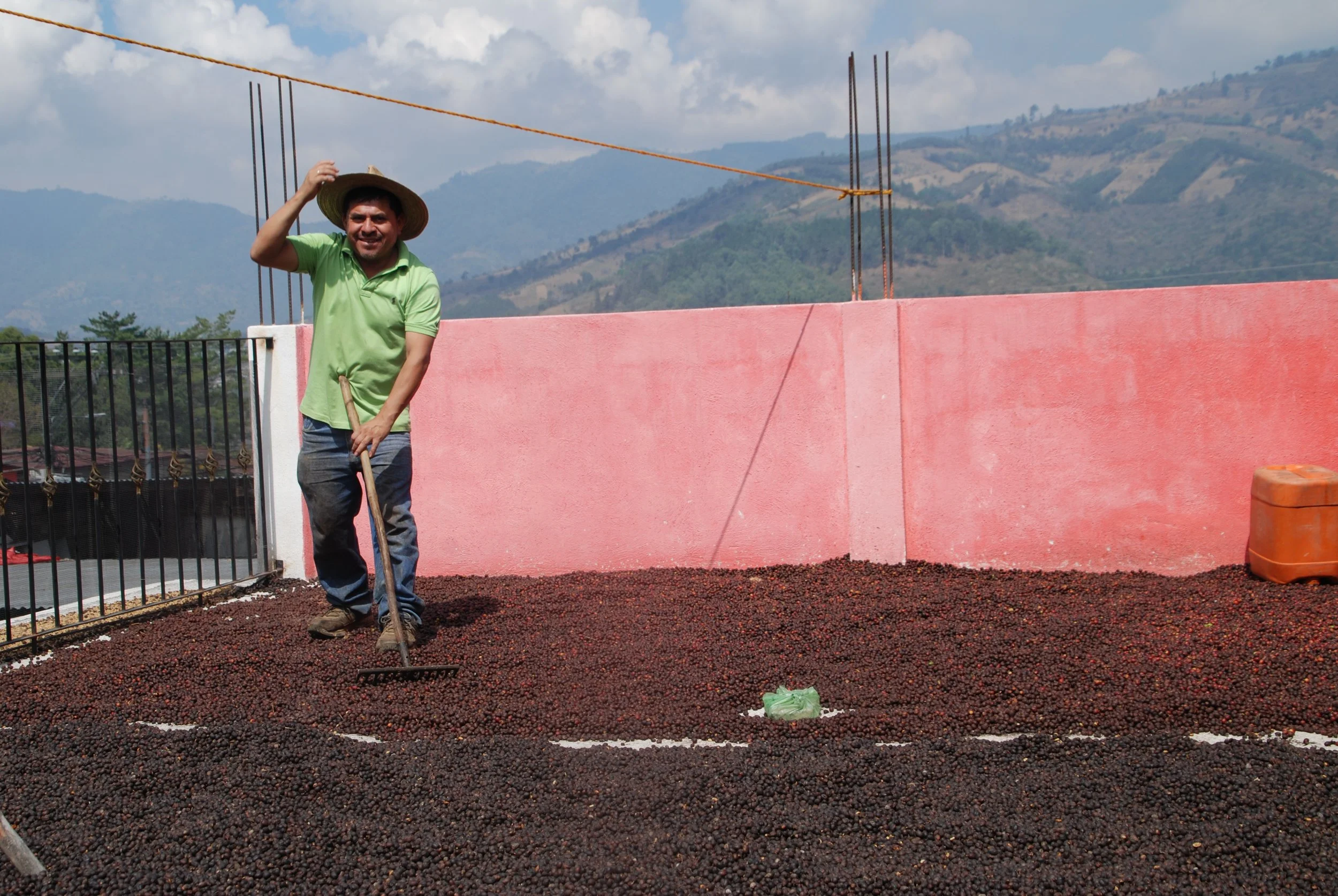Uplifting Small Scale Coffee Producers in the Face of Industry Challenges
by Aliisa Oake
Around 125 million people make up the world’s coffee producers and have a dependence on this industry to sustain their livelihoods . Coffee is one of the world’s most valuable and widely traded agricultural products and is mainly cultivated by small scale producers. Around 125,000 coffee producers make up the Guatemalan coffee industry and reside in the highlands of the country, tending to their crops on land full of history. Much of the land cultivated by coffee producers today has been passed down through generations, or was purchased by families following the signing of the peace accords, after losing their land in the 1940s before and during the 36-year long civil war.
Out of the 125,000 coffee producers in Guatemala, about 97% of them are small scale producers and are responsible for nearly 45% of the total exported coffee. But what does it mean to be a small-scale coffee producer? Why is small scale production important for the specialty coffee industry?
The Hidden Struggles of Small Scale Coffee Producers
Small scale coffee producers are individuals who often work with their families, cultivating coffee on a limited scale and owning plots of land ranging between 2 hectares (5 acres) and 10 hectares (24 acres). Coffee producers who are aware of the high standards demanded by the specialty coffee market invest an incredible amount of time, dedication, and care towards the labor of cultivating and harvesting coffee cherries.
The specialty coffee industry depends on quality-focused practices typically done by those who practice small scale production. The daily realities of their lives, such as early mornings harvesting coffee, physical labor, financial stress, and uncertainty of the future, remain invisible to many consumers who enjoy the final product - a delicious cup of high quality coffee. Additionally, consumer markets tend to define the success of small scale producers in the specialty coffee industry through constantly evolving coffee flavors and quality standards. This creates one of the many challenges that producers face, limiting their ability to evolve and sustain their livelihoods.
Despite maintaining the high quality and reputation of specialty coffee, education about the coffee market is often out of reach. Small scale producers struggle to obtain tools, resources, and leverage to advocate for their trade and negotiate fair compensation. This disconnection leaves them separated from important conversations about profit distribution and decision making within the supply chain, even though their labor and expertise are what specialty coffee depends on.
The uncertainty and stress involved in coffee harvesting and finances contributes to many negative outcomes, one of them being labor shortages. Young members of small coffee producing families grow up with the exposure of uncertainty, creating the desire for them to leave the industry entirely in search for a more stable career. Within the fields of coffee trees, small farms are understaffed and ripe coffee cherries are left unpicked during the crucial time period of the harvest season. A shrinking labor force and lack of investment in farming and infrastructure makes it difficult for those who are knowledgeable about the specialty coffee industry to maintain cultivation practices and achieve high standards. This limits the quality and quantity of the final product, diminishing market opportunities for the remaining small scale producers trying to find a place in a competitive market, further threatening income levels.
The long-term effects of labor shortages are just as alarming, affecting both the future of high quality coffee production and the delicate environment in which coffee trees are grown. For Guatemalan coffee communities, this means valuable knowledge of high-quality coffee cultivation is at risk of being lost, as well as traditions and the future of the land that has belonged to their families for generations. The decline of small scale coffee production threatens the cultural heritage of these communities and the environmental balance of coffee growing regions in Guatemala.
Limits in Accessing Specialty Coffee Markets
One of the biggest aspects involved in selling coffee involves marketing, but many producers typically don’t have opportunities to market their own coffee. The marketing side of specialty coffee typically takes place in the consuming side of the industry, for instance by roasters or coffee shops. This is mostly due to the fact that green coffee buyers are much more involved in the consumer side of the business. Furthermore, it’s sometimes difficult for coffee producers to even feel the need to invest in marketing, especially because they don’t receive enough income for their work. Any additional income they receive goes towards enhancing farming infrastructure rather than learning new business techniques like marketing.
Many small scale coffee producers are located in remote, rural areas where infrastructure, transportation, and communication can be difficult - not to mention being in contact with other areas of the world. This creates a challenge in establishing direct connections with coffee buyers or being actively involved in participating in international trade. Without knowing the true market value of their product or even where it ends up, many have no other option than to sell their green coffee beans to intermediaries at a lower price. Multiple intermediaries are then involved in the marketing and selling process taking a larger share of the profit and leaving a very small portion for coffee producers.
With these aspects involved, many producers don’t know much about the demand side of the specialty coffee industry and interests of those who are purchasing their green coffee beans. Small scale producers typically don’t receive education about this information, making it especially difficult for them to understand what buyers are looking for, how their coffee is being evaluated - contributing to the true value of their specialty coffee and the importance of their work.
Valuing Small Scale Specialty Coffee Producers
For small scale coffee producers to grow and evolve within the specialty coffee industry, their devotion and hard work must be properly recognized. When producers are valued, it creates a ripple effect of positive outcomes - not only improving their livelihoods but also strengthening their coffee community as a whole. Building this value requires greater transparency throughout the coffee supply chain and fostering a stronger connection between consumers and those who cultivate their coffee. By ensuring fair wages, meaningful recognition, and expanded opportunities, the specialty coffee industry can become more equitable, sustainable, and resilient in the face of global challenges.
On a social standpoint, valuing small scale coffee producers can help strengthen their entire farming community. Rural and more urban societies and economies benefit from productive small farms, which also creates more jobs and wealth for their communities. Additionally, revenue from access to fair markets allows them to buy more land, invest in more agricultural tools for better farming practices, and plant varieties of coffee plants that are more resistant to environmental challenges. This is especially important because small scale producers typically obtain land that is passed down from generations before them, which often shrinks in size. By earning more money, small-scale producers can invest more into their business, purchase more land for small-scale farming, and cultivate more coffee and other agricultural products.
Furthermore, this value and appreciation can foster the growth of rural development, attracting and retaining younger generations who might otherwise leave for new job opportunities. With money circulating within the community, economic growth serves as a motivation for people to stay and thrive within their community. This not only makes coffee farming a more attractive and viable livelihood for younger generations, but also preserves agricultural knowledge and traditions.
By empowering small scale coffee producers, supply chains are transforming and markets are becoming more reliable for selling high quality coffee at higher prices. When producing increased quality levels of coffee, producers are learning about the true worth of their product, contributing to the growth of the specialty coffee industry and evolving the reputation of Guatemalan coffee. This has brought them more opportunities, especially with the market evolving and specialty coffee becoming more desirable than traditional coffee. Many consumers are beginning to place a higher value on coffee flavors and origins, as well as learning about and sharing the stories of the people behind each cup. This growth in awareness creates new opportunities for small scale producers to cultivate higher quality coffee, generate more income, and achieve more recognition for their work.
Small Scale Coffee Producers and the Future of Coffee
The long-term sustainability of Guatemalan coffee and the lives of small scale coffee producers depends on the support of people through every step of their business. Supporting those involved in cultivating specialty coffee requires meaningful, collaborative action from producers, buyers, roasters, and consumers.
De La Gente acknowledges the challenges faced by small scale producers and stepped in by placing high value on the work and dedication of members of our partner cooperatives. We work closely with small scale coffee producers and remove barriers by providing access to knowledge and training, creating market opportunities through direct trade relationships, and fostering transparent relationships. This has proven to be incredibly powerful in building long-term partnerships with buyers since producers have gained direct access to consistent, fair paying markets. Our buyers also work alongside us in providing essential feedback and recognition, supporting us in valuing coffee producers and paying them higher premiums for their specialty coffee.
Beyond financial income, recognition and respect for their work plays a crucial role in strengthening producers’ sense of pride and purpose. When we share their stories, heritage, and the hard work involved in their trade with buyers and consumers, it affirms the value of their lifelong dedication. This sense of pride is deepened when coffee buyers, roasters, and consumers acknowledge their craft, motivating them to achieve more goals and continue investing in quality and sustainability practices. For the families within De La Gente’s partner cooperatives, this recognition uplifts entire communities and helps secure a future where Guatemalan coffee cultivation and specialty coffee is seen as a respected and viable business.


